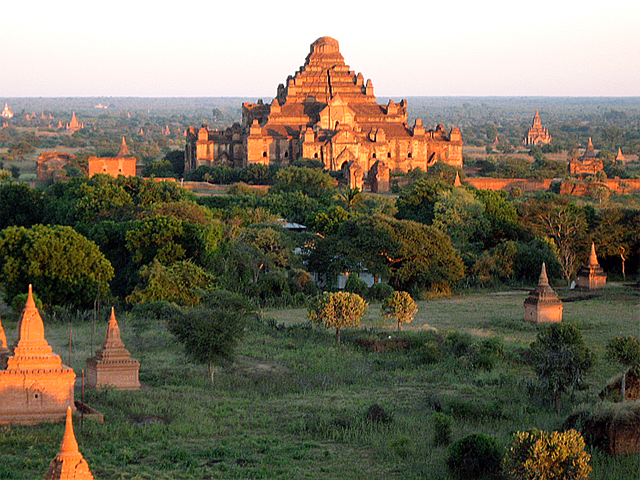Will Burma Ever Change?
 By Uncle Cheng
By Uncle Cheng
Ever since my first visit to the country in 1971, Burma has remained one of my most loved nations. I can think of few nations that have changed less during nearly four decades. It seems that the Burmese are cruelly fated to no improvement in their lives. They are still stuck exactly where they were forty years ago.
The original, indigenous peoples of what is now Burma were cousins of the Tibetans, and they remain, as television images have graphically reminded us recently, overwhelmingly Buddhist. That Burma’s Buddhism is established on the austere, Theravada, school, means that the country’s Buddhists remain especially severe and ascetic. Over the years I have been lucky to visit nearly all Burma’s major cultural sites, some many times, and there is no doubt that Burma, despite being trapped in its past, remains a wonderfully unspoilt place.
While we have been able to witness Burma’s political drama unfold day-by-day on our television screens, it is worth reminding ourselves that Burmese population have never known any government which was not both oppressive and tyrannical. The present military junta is just the latest example of such governments. It was not that long ago that the Burmese suffered the appalling atrocities of last king Thibaw, who was unceremoniously sent into Indian exile by the British colonialists.
When Burma was annexed by the British and made into a virtual province of India, it was hoped that the life of ordinary Burmese would improve. Sadly, the Japanese occupation made Burma into one of the most severe and deadly battlefields of the Second World War. When the British, worn out by war, gave India its independence in August 1947 it was inevitable that independence would be forced on Burma as well.
The hope had been that Burmese independence would herald peace and prosperity for that tortured country but all dreams of stability were swiftly dashed when the charismatic national leader General Aung San (the father of the present opposition leader Aung San Suu Kyi) was assassinated in mid-1947, some six months before the British finally left the country.
Despite all its handicaps Burma in 1948 remained a potentially prosperous country and its people should rightfully have gained affluence. Instead, ever since the dictator Ne Win brutally destroyed all the country’s political and economic infrastructure and imposed a truly dismal dictatorship, the Burmese people have been forced into penury.
So why have the people of Burma been so unfortunate? Why have they missed out on all the great economic and social advances enjoyed by the peoples of neighbouring countries such as Thailand, India and China? The obvious responsibility lies with the military’s grip on all aspects of Burmese life. There is no greater truth than the maxim than that the sword is mightier the pen. Perhaps the pen will triumph in the end but that will be small consolation to the average Burmese family who have suffered so much for nearly half a century.
A stage has been reached where all decent people the world over want Burma to escape from its military hermit status. Everyone knows in their bones that the army’s dictatorial rule is nearing its inevitable end. Yet there are nevertheless some ominous signals on the horizon. The wished-for transition to democracy, especially liberal democracy, will quite probably lead to the total disintegration of Burma into separate states based on ancient tribal loyalties. The large western province of Arakan, for example, which was once independent, and the northern Shan states may seek autonomy or even independence.
Political change in Burma may not be an altogether pleasant experience. Nor should we forget that we depend on Burma for the best, most precious jades.




2 comments:
Wish, better things to come for Burma.
www.hanafionline.com
sites More Help look these up internet More Info Get the facts
Post a Comment